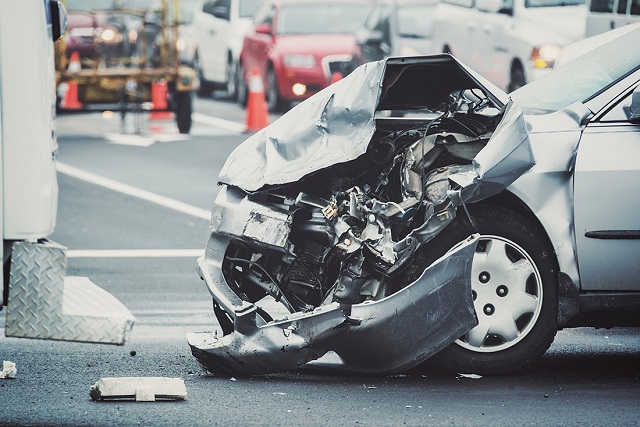EDITORIAL COMMENT: Let’s drive to get to our destinations alive

We are approaching a long weekend, a period during which many of our people will travel to their rural homes or holiday destinations to freshen up.
On Monday next week, the country commemorates Heroes’ Day and the next day we mark Defence Forces Day. These two days are, of course, preceded by the weekend meaning that many businesses will most likely close shop on Friday and reopen on Wednesday next week. This gives workers a welcome mid-year break.
The Heroes’ and Defence Forces holiday is very important on our national calendar. It is the time we remember the thousands of people who took up arms during the struggle for Independence from while colonialism from the First Chimurenga/Umvukela in 1896 to the 1960s to 1979 Second Chimurenga/Umvukela. Tens of thousands died during both wars as they fought to free their land from the shackles of British colonial dictatorship.
Thousands more were injured or displaced from their ancestral homes. Many have actually not recovered their limbs or wellbeing that they lost during the liberation struggle. Many have also not returned to their ancestral homes so are literally lost in areas that don’t connect with their original places of abode.
Some of our heroes fought in the second phase of the liberation struggle and were fortunate to live through it but have lost their lives over the past 37 years.
A few others are still alive and will, like everyone else, mark the 37th anniversary of Heroes’ Day on Monday.
Also, the holiday is an opportunity for the country to reflect on the role that our defence forces have played since we attained Independence in 1980. Some of them were involved in the Second Chimurenga/Umvukela while others joined the armed forces later on but have sacrificed their lives in defence of the country’s territorial integrity and sovereignty. They have defended the national interest in Mozambique and have helped our African brothers and sisters in Angola, Democratic Republic of Congo and elsewhere.
We tip our caps to them.
While we are pleased to be commemorating the two days, and going into the long weekend, we note that this period has, over the years, been unfortunately associated with dozens of road accidents, a good number of them fatal. For example, at least 13 people died while 67 others were injured in separate road accidents that occurred during last year’s Heroes’ Day and Defence Forces’ Day holidays.
As some of our compatriots prepare to travel for the break in two days’ time, we want to implore them to do so in a manner that does not endanger their lives or those of fellow road users and property.
The increased volume of traffic on our roads will create conditions for possible accidents. The excitement that always accompanies holidays will also be a factor in causing road accidents.
We pray that this year will be different.
In this connection, we commend the campaign that has been going on over the past few days to promote safe travel over the next week. The Ministry of Transport and Infrastructural Development and the Traffic Safety Council of Zimbabwe (TSCZ) have been airing messages in the mass media urging our people to uphold road rules and regulations.
In his message to road users, Dr Joram Gumbo warned of stiff penalties to those who fail to conduct themselves properly. These, he said, would be arrested, defective vehicles seized and permits cancelled for those who don’t play to the rules.
“The Zimbabwe Republic Police (ZRP) and VID will be out in full force, on the lookout for any defective vehicles throughout the holiday period,” he said.
“All defective vehicles will be removed from the roads. . . . It is the obligation of an operator to ensure that their buses are not overloaded, drivers are not under the influence of alcohol and to encourage their drivers to stick to the regulated speed limits. Operators are also strongly urged to desist from the habit of overworking their drivers as it results in driver fatigue as well as failure to adhere to their time tables.”
In addition to the foregoing, our people are urged to shun travelling at night as most fatal accidents tend to occur during that time. The crash that killed 30 people near Chaka along the Masvingo-Harare Road in April happened at night.
The other that killed 43 people in Hurungwe in June happened at night as well. Examples of other road accidents that occur at night are indeed too numerous to mention.
More can happen if our people drive at night over the next seven days of holiday travelling. But if they heed the TSCZ advice against night driving, we stand a chance of recording fewer crashes this time.
Maximum speed limits are set for a reason and that reason is a good one. There is absolutely no reason for a driver to cruise at 120km/hr in a 60km/hr radius. High speed reduces reaction times and distances so any distraction caused by mechanical failure on the vehicle or a sudden emergence of an obstacle on the road often result in fatal accidents.
Therefore, our message to the motoring public as we approach the holiday is that they must shun drunken driving, night driving, respect maximum speed limits, ensure their vehicles are roadworthy and obey road rules.
We want to commemorate these two important days in happiness and good health, not in tears or while nursing broken limbs.











Comments